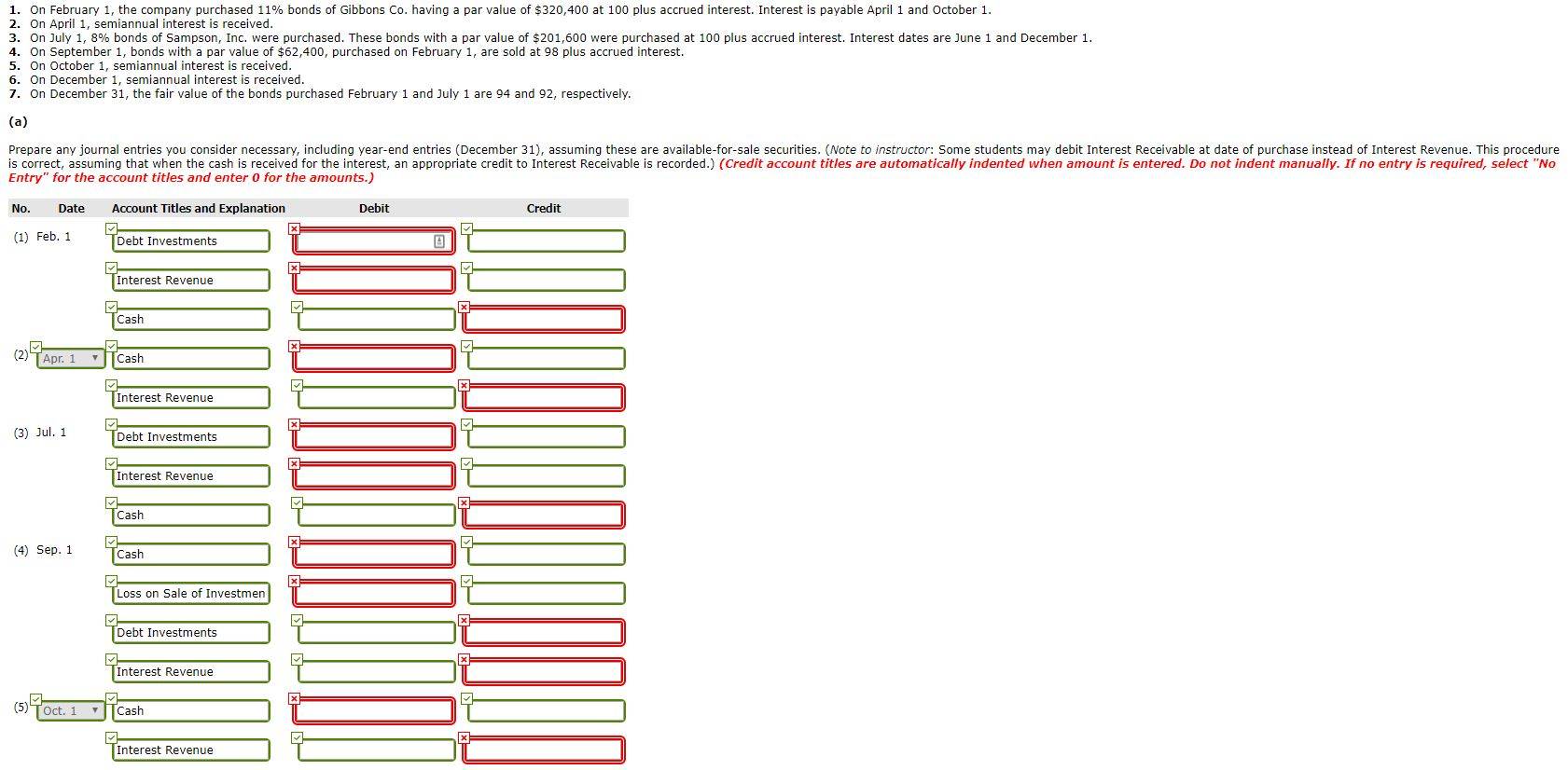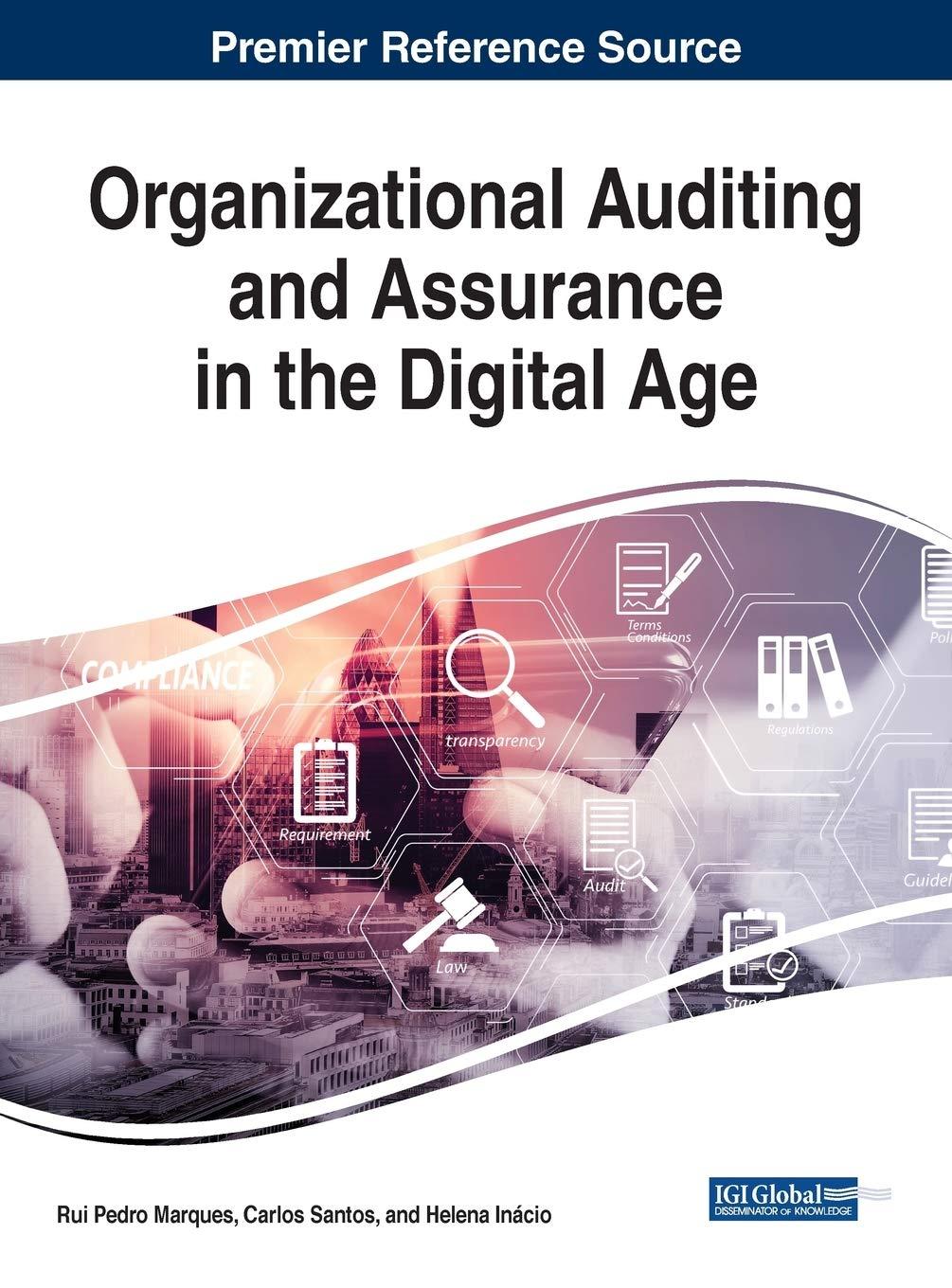Question
The following information relates to the debt securities investments of Flint Company. 1. On February 1, the company purchased 11% bonds of Gibbons Co. having
The following information relates to the debt securities investments of Flint Company.
| 1. | On February 1, the company purchased 11% bonds of Gibbons Co. having a par value of $320,400 at 100 plus accrued interest. Interest is payable April 1 and October 1. | |
| 2. | On April 1, semiannual interest is received. | |
| 3. | On July 1, 8% bonds of Sampson, Inc. were purchased. These bonds with a par value of $201,600 were purchased at 100 plus accrued interest. Interest dates are June 1 and December 1. | |
| 4. | On September 1, bonds with a par value of $62,400, purchased on February 1, are sold at 98 plus accrued interest. | |
| 5. | On October 1, semiannual interest is received. | |
| 6. | On December 1, semiannual interest is received. | |
| 7. | On December 31, the fair value of the bonds purchased February 1 and July 1 are 94 and 92, respectively. |
(a) Prepare any journal entries you consider necessary, including year-end entries (December 31), assuming these are available-for-sale securities. (Note to instructor: Some students may debit Interest Receivable at date of purchase instead of Interest Revenue. This procedure is correct, assuming that when the cash is received for the interest, an appropriate credit to Interest Receivable is recorded.) (Credit account titles are automatically indented when amount is entered. Do not indent manually. If no entry is required, select "No Entry" for the account titles and enter 0 for the amounts.)

Step by Step Solution
There are 3 Steps involved in it
Step: 1

Get Instant Access to Expert-Tailored Solutions
See step-by-step solutions with expert insights and AI powered tools for academic success
Step: 2

Step: 3

Ace Your Homework with AI
Get the answers you need in no time with our AI-driven, step-by-step assistance
Get Started


